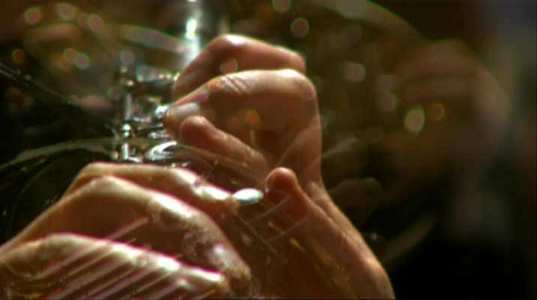Review of Vladimir Ashkenazy: We Want The Light (Two Disc set)
Introduction
The veteran music documentary maker Christopher Nupen`s one-hour film, We Want The Light, was first broadcast by BBC2 on Holocaust Memorial Day 2004. The title is taken from a poem written in the Theresienstadt concentration camp by a 12-year-old girl, Eva Pickova, and the film examines the cultural origins of genocide during the Second World War.
Nupen claims that it is a film "…about freedom and captivity, about emancipation, acculturation and assimilation". Nupen claims that the majority of German music German music, from Johann Sebastian Bach onwards, was imbued with the detestation for Jews. This was more than here-say. Wagner shamefully recorded such thoughts in his spiteful essay `The Jews in Music` and this has since been credited as having an unhealthy influence on the Third Reich and their leader.
But it`s also a film about hope (hence the title) and how much music can mean to people even in the direst of circumstances.
The film ends with some deeply moving interviews with concentration camp survivors. Perhaps the most inspiring of these is the interview with the remarkable Alice Sommer Herz who is 100 years old and who played more than 100 concerts in the Theresienstadt camp. Despite her age, she still plays the piano for two and a half hours every day, and studies philosophy at London University three days a week. There is undeniable a quiet dignity about her despite the appalling suffering she faced and witnessed. Having lost her husband in Dachau just 6 weeks before the end of the war, and having recently lost her son who had lived with her in the horror of the concentration camp from the age of six. Alice claims that she has never hated and never will - and that it is this spirit, along with her life-long love of music that has helped her live so long.
The DVD is divided into three parts. Part one is the original one-hour broadcast film, `We Want The Light`. The second part features all of the film used in the film, not as background but played in vision. This includes pieces by Bach, Mahler, Schoenberg, Schumann, Mendelssohn, Wagner, and Waxman - all performed by The Gurzenich Orchestra of Cologne, The Cologne Opera Chorus and the Cologne Children`s Choir, all conducted by Vladimir Ashkenazy. Part three consists of four hours of additional interviews with Evgeny Kissin, Vladimir Ashkenazy. Zubin Mehta, Itzhak Perlman, Pinchas Zukerman and others, including full interviews with the three inspiring Holocaust survivors.
This is a thought-provoking release that will provide a touching commentary to the 60th anniversaries in 2005 of the liberation of Auschwitz and Theresienstad, as well as providing some beautifully played pieces that have added poignancy in the context of this film project.

Video
16:9 Anamorphic Wide Screen
This is quality documentary making at it`s best and the digital video transfer here is really top-notch. Of course the budget hasn`t run to film so this has a `television` feel to it but it`s all tastefully shot and nicely transferred.

Audio
As you would expect from a BBC documentary such as this, the soundtrack is really very well crafted, with deeply resonating interview sound and a nice mix with music where appropriate. The music plays well in 5.1 where some time has been spent spacing the orchestration for maximum enjoyment. It really feels like total immersion and even though I`m not a great fan of classical music, the context as well as the 5.1 mix makes this an incredibly emotive experience.

Features
I guess you could argue the case that the one hour feature of the title is embellished with many extras - not least four hours of additional interviews and a couple of hours of live classical music. Either that or you view those as part of the whole. Either way you won`t feel cheated. This is great value for money stuff.

Conclusion
This is a nicely crafted documentary that uses a very tasteful and well-tried format to great effect. The focus here is on the subject matter and not on the film itself as a piece of creative art. All the talking heads are elegantly and respectfully shot and the supportive cutaway material is simply represented. Clearly there is great respect and sensitivity here on the part of the film-maker and it`s to his credit that the techniques of documentary making never get in the way of pithy content as happens so frequently these days. You get the sense throughout that this programme was very much a labour of love for Director / Producer Christopher Nupen who has many classical music documentaries to his credit.
Perhaps most poignant of all here is the fact that, despite 60 years passing since the atrocities of World War 2, we are all painfully aware of global atrocities today. This film offers a chink of light in an otherwise terribly bleak landscape.
Your Opinions and Comments
Be the first to post a comment!